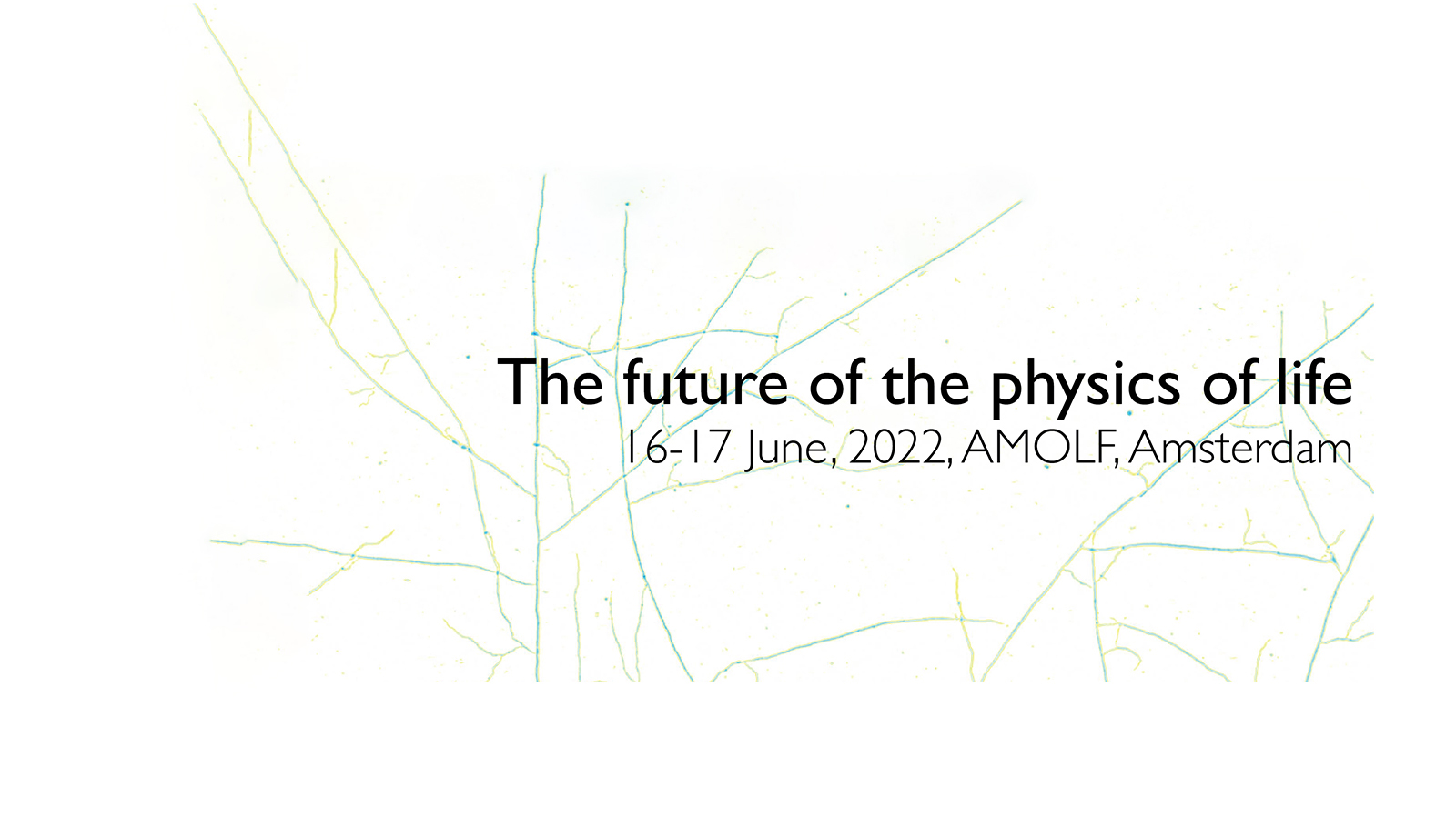
The future of the physics of life workshop
16-17 June 2022 | 9:00-17:00 | on location
Workshop Overview
The interface between physics and biology has seen tremendous growth in the last 20 years. New techniques, such as single-cell/single-molecule imaging and highthroughput sequencing, have made it possible to generate data on an unprecedented scale. These technological developments are paralleled by theoretical advances. Concepts from physics such as fluctuations, phase separation and criticality have been invoked to explain the design of biological systems. Techniques from mathematics and computer science such as machine learning and Bayesian modelling are increasingly being applied to analyze experimental data. These trends have swept across the diverse research fields across the now extremely broad interface between physics and biology, ranging from microbiology, cellular/developmental biology, immunology, to neuroscience.
And yet, we have arrived at a crossroads. A pressing question is whether the future of experiment-theory interactions will be a continuation of the existing approaches, or whether fundamentally new routes will be taken. As we enter this new era of data-rich biophysics, time is ripe for a workshop to reflect on recent developments across these diverse fields, look ahead at new directions both theoretically and experimentally, and ask: what kind of unifying principles might we expect to uncover in the coming years, and through which approaches?
For this workshop we have identified three focus areas, chosen to not only reflect exciting recent progress but also raise new questions about how best to pursue the physics of life in the coming decade: (1) Coarse-grained versus detailed biochemical modelling; (2) Concept- versus “hypothesis-free”, data-driven modelling; (3) Design follows optimality.
Finally, because all of these questions are even more pressing for multi-cellular organisms, we have a special focus session on these systems.
Confirmed speakers
The lectures of this workshop were recorded and are published on Youtube.
Coarse-grained versus molecular modelling
- Terry Hwa (UCSD)
- Christoph Zechner (MPI Dresden)
- Massimo Vergassola (ENS, Paris)
Data-driven versus concept-driven modelling
- Aaron Dinner (University of Chicago)
- Thierry Emonet (Yale University)
The optimality principle
- Gasper Tkacik (IST, Vienna)
- Aleksandra Walczak (ENS, Paris)
Multicellular systems
- Arup Chakraborty (MIT)
- Karen Alim (MPI Göttingen)
- Katharina Sonnen (Hubrecht Institute)
- Toby Kiers (Vrije Universiteit Amsterdam)
- Jeroen van Zon (AMOLF)
After dinner talk
- Bill Bialek (Princeton)
Key dates
March 18th: deadline for application and abstract submission
April 1st: e-mail notification to applicants of participation acceptance
May 15th: deadline for payment workshop fee
June 16-17: workshop
See here for workshop poster
Organizers
- Aleksandra Walczak
Statistical Physics and Inference for Biology – Laboratoire de Physique, Ecole Normale Supérieure (ICAM affiliate), Paris, France - Sander Tans
Biophysics – AMOLF, Amsterdam, The Netherlands
Single-Molecule Biophysics – Delft University of Technology, Delft, The Netherlands - Tom Shimizu
Systems Biology – AMOLF, Amsterdam, The Netherlands - Pieter Rein ten Wolde
Biochemical Networks – AMOLF, Amsterdam, The Netherlands

